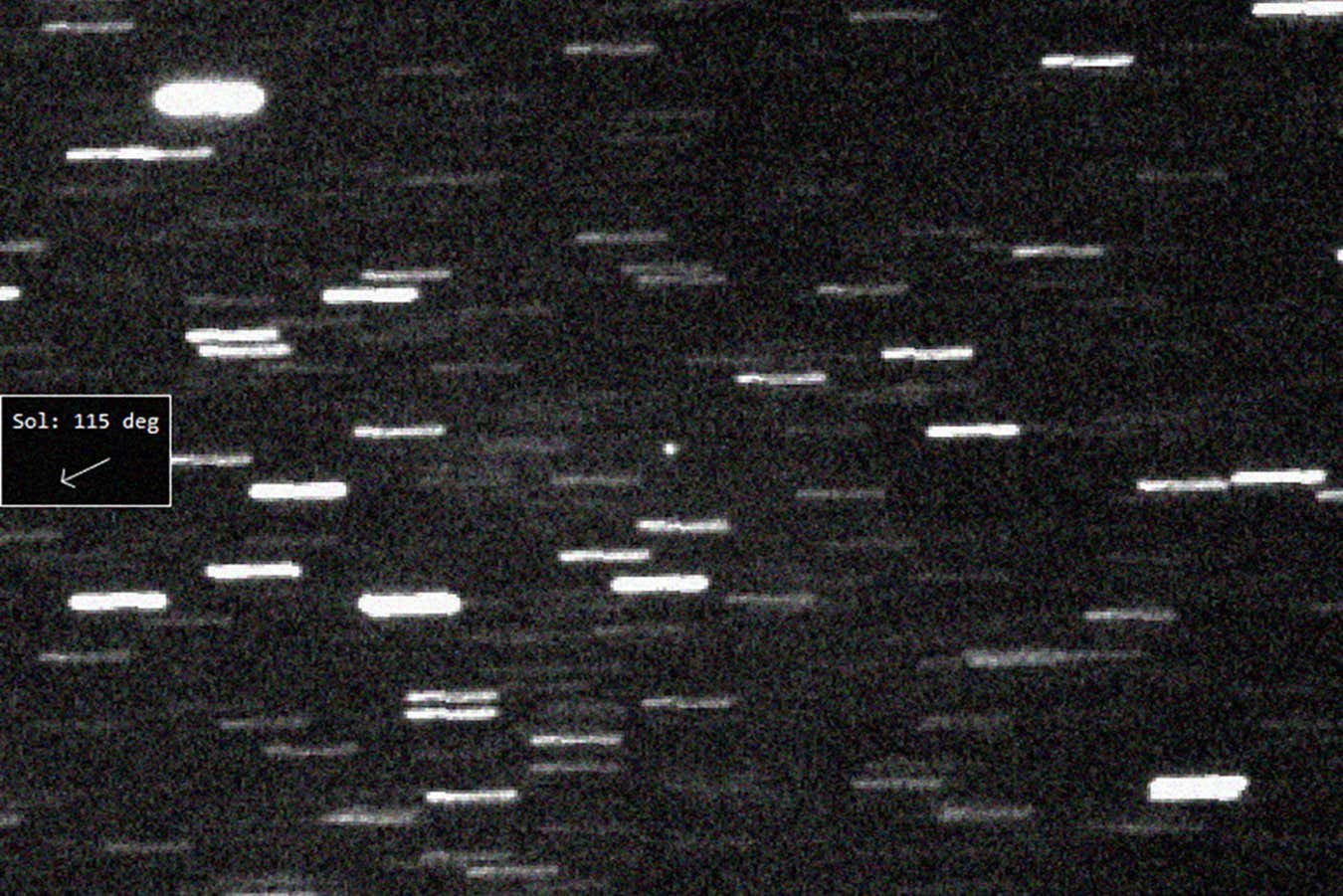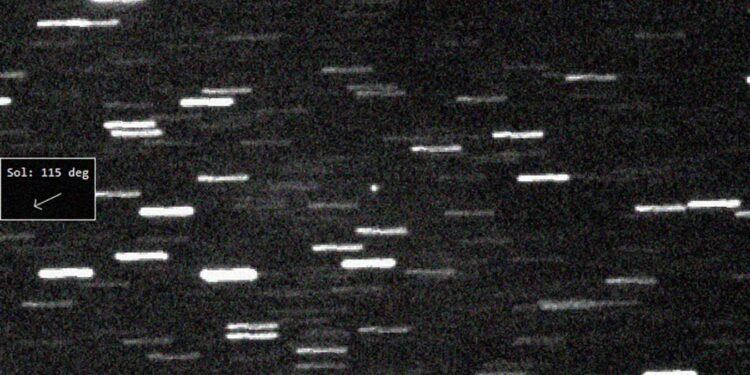
Comet 3I/ATLAS is the third interstellar object we have seen in the solar system
E. Guido, M. Rocchetto, J. Ferguson
An interstellar object has been spotted zipping through our solar system, and amateur and professional astronomers around the world are now racing to train their telescopes in its direction, allowing them to refine models of its trajectory and officially confirm that it is a visitor from another star.
The comet – originally called A11pl3Z – is only the third interstellar object we have seen. The asteroid ‘Oumuamua was spotted in October 2017, three days after it made its closest approach to Earth, and was controversial because its unusual acceleration led to suggestions from some quarters – now thoroughly debunked – that it could be an alien spaceship. A second object, comet Borisov, was seen in 2019, and because it was spotted earlier in its journey through the solar system we were able to observe it in more detail.
A11pl3Z was first noticed by NASA’s Asteroid Terrestrial-impact Last Alert System (ATLAS). Earlier images of the object caught by ATLAS, but not spotted at the time, have since been found in data from 14 June, while amateurs at the Deep Random Survey in Chile and others have gathered new observations. The Minor Planet Center – the official body responsible for observing and reporting on such objects – has now designated it as 3I/ATLAS, indicating both its status as the third interstellar object and its discoverers.
The object is thought to be around 20 kilometres wide and currently travelling around 60 kilometres per second, but it will accelerate as it is drawn in by the sun’s gravity. It will reach its closest point to the sun in October, passing within two astronomical units – or twice the distance that Earth is from the sun – before swinging away and eventually leaving the solar system.

The predicted path of 3I/ATLAS, making it only the third interstellar object ever seen in the solar system
CSS, D. Rankin
That will give us limited time to study 3I/ATLAS, but because it has been seen on its way into the solar system, we will at least have more time than with the other interstellar objects. “They really do whip through the solar system at ridiculous speeds,” says Mark Norris at the University of Central Lancashire in the UK. “They’re really fleeting and you are severely limited in what you can learn about them.”
Unfortunately, the chance of sending a mission to intercept the visitor and study it up close is beyond currently technology, says Norris. “If we launched it today, the thing’s already gone,” he says. In years to come, things could change. The European Space Agency (ESA) is planning to send its Comet Interceptor mission into space in 2029, where it will wait to pounce on newly discovered comets or even an interstellar object.
For now, astronomers will have to rely on existing telescopes to examine 3I/ATLAS from afar. “It will be observable roughly until the end of the year, so we have plenty of time to fix the trajectory well enough to then train spectrometers on it,” says Richard Moissl at ESA.”Our observers are already trying to find out when is the soonest they can can look at it. Everyone is quite excited about this and and gearing up.”

The world capital of astronomy: Chile
Experience the astronomical highlights of Chile. Visit some of the world’s most technologically advanced observatories and stargaze beneath some of the clearest skies on earth.
Topics:
Source link : https://www.newscientist.com/article/2486670-interstellar-comet-hurtling-through-solar-system-named-3i-atlas/?utm_campaign=RSS%7CNSNS&utm_source=NSNS&utm_medium=RSS&utm_content=home
Author :
Publish date : 2025-07-02 13:24:00
Copyright for syndicated content belongs to the linked Source.





